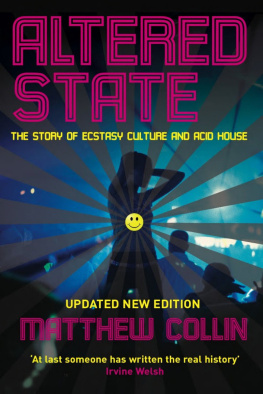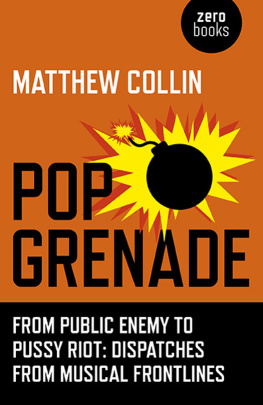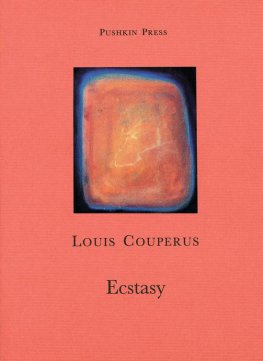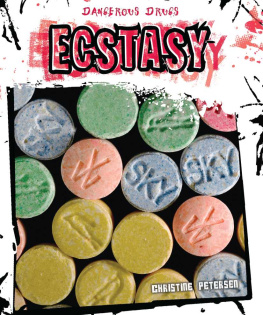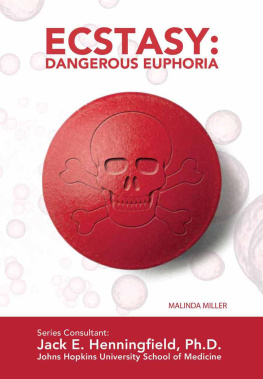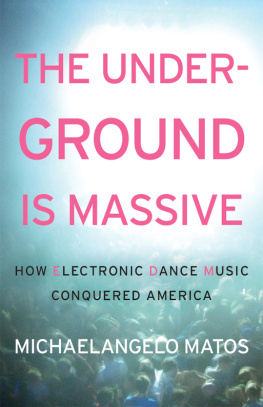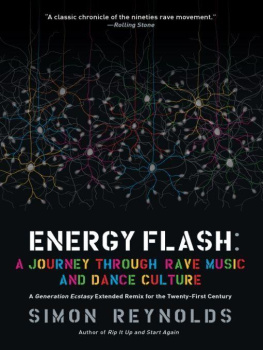Matthew Collin is a former editor of The Big Issue, i-D magazine and the Time Out website. He has worked as a foreign correspondent for the BBC and now reports for Al Jazeera from Tbilisi, Georgia. He has also written for many newspapers and magazines, including the Guardian, Observer, Independent, Daily Telegraph and Mojo. His other books, This is Serbia Calling and The Time of the Rebels, were also published by Serpents Tail.
John Godfrey, who worked on the original research and interviews for this book, is a former editor of i-D, deputy editor of The Face and executive producer at Rapido TV. He now lives in Sydney, Australia, where he is the executive producer of factual and documentary programmes at SBS.
Praise for Altered State
At last somebody has written the real history of the last ten years, and written it with such wit, verve, empathy and profound intelligence. If youve been part of the scene in any way, this brilliant book will serve as positive affirmation. If you havent, yet still feel moved to pontificate about it, you will no longer have the excuse of doing so from a position of ignorance. I cant recommend this marvellous piece of work enough and in a sane world it would sell more copies than any other book written over the last decade Irvine Welsh
The first full history of the dance boom which, fuelled by Ecstasy, has transformed British culture over the past decade: here you will also find the drive to transcendence, or oblivion, that is at the heart of British pop Jon Savage
Altered State is not just timely; it was crying out to be written Independent
altered state
the story of ecstasy culture and acid house
matthew collin
with contributions by john godfrey

First published in Great Britain in 1997 by
Serpents Tail
an imprint of
PROFILE BOOKS LTD
3A Exmouth House
Pine Street
London EC1R 0JH
www.profilebooks.com
Revised and updated in 2009
This eBook edition published in 2010
Copyright Matthew Collin, 1997, 2009, 2010
The moral right of the author has been asserted
This eBook is copyright material and must not be copied, reproduced, transferred, distributed, leased, licensed or publicly performed or used in any way except as specifically permitted in writing by the publishers, as allowed under the terms and conditions under which it was purchased or as strictly permitted by applicable copyright law. Any unauthorised distribution or use of this text may be a direct infringement of the authors and publishers rights and those responsible may be liable in law accordingly.
A CIP catalogue record for this book is available from the British Library.
eISBN 978 184765 641 4
contents
foreword
(a long time afterwards)
When Altered State was written in the mid-nineties, the culture which it documents had yet to reach its peak. Although it had already been transformed from an underground scene with roots in renegade urban cults and the secretive psychedelic avant-garde into a mass-market phenomenon which brought recreational drug use into the social mainstream, at that time it was still evolving. What was first called acid house and then the rave scene in the late eighties had turned into a multi-million-pound leisure industry known as dance culture; a far less mutinous and outlandish phenomenon, although its narcotic allure remained strong.
It had become the most vibrant, diverse and long-lasting youth movement that Britain had ever seen, one which continued to send out cultural and political shock waves more than a decade after it began. The fundamental reason why it became so pervasive and influential was simple: it was the most extraordinary entertainment format yet invented. The combination of Ecstasy and electronic dance music had genuine transformative power: it could deliver altered states of consciousness; experiences which changed the way we felt, the way we thought, the way we lived.
The scene had an inclusive, open-access ethos rather than a defined ideology, and this was the vital force which drove it forwards. It was a culture with options in place of rules; a series of possibilities which people could use to define their own identities, possibilities which could be adapted to each individuals social background and belief system. The recurring story was of people being inspired by the revelatory flash of the primal Ecstasy experience, then getting involved and altering the direction of the scene by bringing in their own ideas and influences. Musicians, entrepreneurs, artists, criminals, political activists, hippies and football fans all affected its development by adapting it to suit their own desires hence the scenes relentless dynamism, its constant self-reinvention and its unprecedented longevity.
At its heart was a concerted attempt to suspend normal transmission, if only for one night; to conjure from sound and chemistry, however briefly, a kind of utopia what anarchist philosopher Hakim Bey has described as a temporary autonomous zone. Such zones, Bey says, are successful raids on consensus reality, breakthroughs into more intense and more abundant life, fleeting moments where fantasies are made real and freedom of expression rules before external reality intervenes. Sometimes these autonomous zones could feel very real and very potent indeed.
Ecstasy culture was no freak storm which burst miraculously from the ether. It was shaped by time, place, and very specific economic and social conditions: the late eighties in urban Britain, the end of the Thatcher years, when the psychic map of the country was redrawn. So long afterwards, its hard to imagine how powerfully the Conservative leader Margaret Thatcher once dominated our ideological life and how much her politics divided us, but at the time it was inescapable. The Thatcher fantasy was about breaking free from the past, entering a paradise of unrestrained entrepreneurial and consumer opportunities where materialism was elevated to a creed, individualism was celebrated and collective action was discouraged or outlawed; an ideology which would define the decades that followed. Acid house and the rave scene expressed deeply-felt desires for communal experiences which Thatcher rejected There is no such thing as society, in the words of her most notorious assertion but they also seemed to echo her libertarian capitalist doctrine of market freedom and consumer choice. They provided an outlet for Thatcherite entrepreneurial impulses, even amplified them, enabling people to get involved, to participate rather than simply observe or consume, to do something, whether it was recording a techno track in a bedroom studio, organising a warehouse party or selling a bag of pills (although criminal entrepreneurialism probably wasnt exactly what Conservative ideology envisaged).
Simultaneously, the exponential increase in recreational drug use in Britain from the late eighties onwards, which was catalysed by Ecstasy the miracle pill, as some of us saw it back then ensured that the mainstream of youth culture became intimately connected with illegal activity. As drug use became normalised, criminality was democratised. What the author Irvine Welsh called the chemical generation was also a generation of outlaws. Three separate pieces of legislation were introduced by the British government during the nineties in an attempt to contain the spread of Ecstasy culture; one of them even tried to outlaw electronic dance music, if it was played in certain circumstances. All of them were unsuccessful.
Next page
